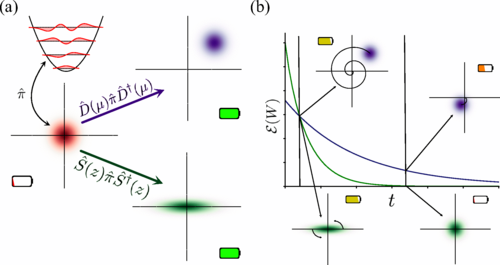
Goold_Group
@qusystcd
Group working on the boundaries between quantum theory, thermodynamics and non-equilibrium condensed matter lead by John Goold at Trinity College Dublin.
ID: 923512102555475970
https://www.qusys-tcd.com 26-10-2017 11:30:18
4,4K Tweet
1,1K Followers
843 Following


Hard to believe it’s Wicklow ! Out with Goold_Group PhD students Leonard and Laetitia - even the Slovenian was impressed



arxiv.org/abs/2501.05694 super perspective about myths around quantum computation before full fault tolerance today on arxiv - lead by the. great Zoltán Zimborás - super happy to be involved- it was the result of a three day discussion group at a workshop in Lapland last year






Nice to have this one published - well done again to Goold_Group PhD student Laetitia Bettmann: Information geometry approach to quantum stochastic thermodynamics journals.aps.org/pre/abstract/1…



Delighted to announce that we've signed a non-binding letter of intent with dMY Squared Technology Group to take Horizon Quantum public. We couldn't ask for better partners on the journey to the public markets than Harry You and Niccolo de Masi. horizonquantum.com/updates/news/h…

Thermodynamics of photoelectric devices, Samuel L. Jacob, Artur M. Lacerda, Yonatan Dubi, and John Goold Trinity College Dublin Goold_Group Ben-Gurion University of the Negev #StatisticalPhysics #Quantum go.aps.org/4by8bNk




Minister James Lawless has secured Government approval to sign the European Quantum Pact, a joint declaration by EU science ministers recognising the transformative potential of quantum technologies. 🔗 gov.ie/en/department-…

The latest work from Goold_Group Trinity College Dublin. Great work by postdoc Sam Jacob who derived Kubo formulae without time dep classical driving but rather autonomously by another quantum particle. A generalised FDT appears outside of linear response read here arxiv.org/abs/2505.03686


Great to see the latest Goold_Group Trinity College Dublin paper on Physical Review Letters today - where we show that quantum batteries with higher charge can discharge faster than less charged ones and other anomalous effects journals.aps.org/prl/abstract/1…








